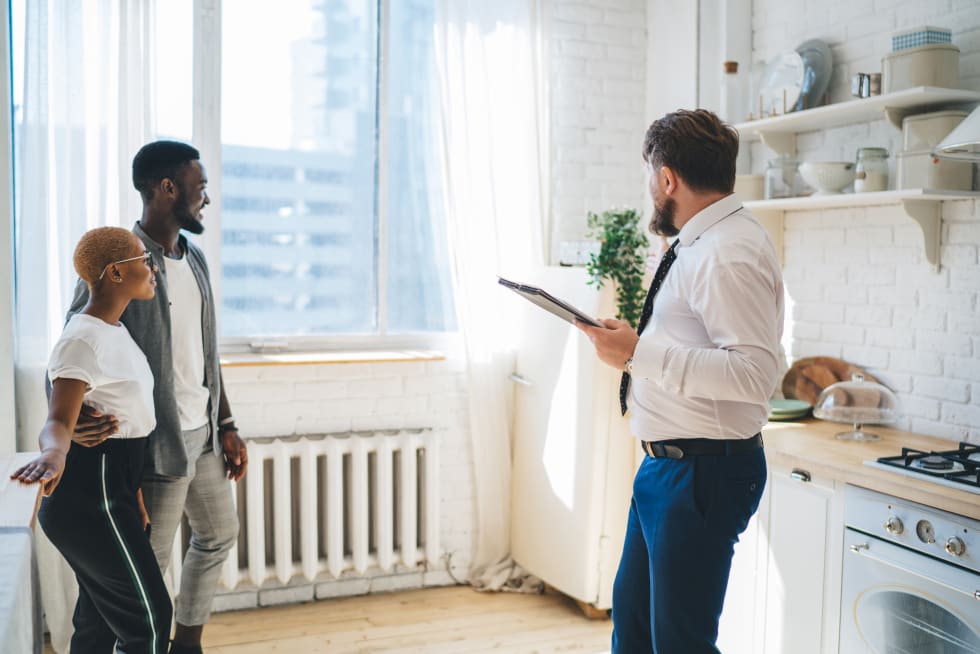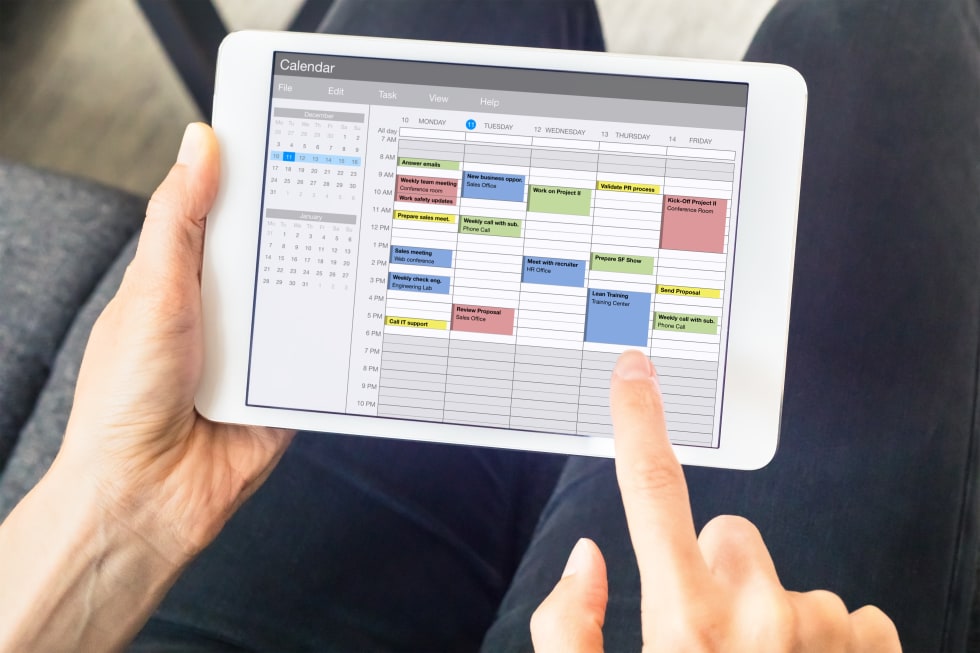Rental Inspection Checklist: An Overview + Expert Tips

When you have tenants, periodic rental inspections are part of running a successful business. You want to ensure the property isn't damaged, aside from normal wear and tear as defined by the lease. It's essential to verify the property's condition, especially when a tenant is moving-out and needs a walk-through to assess the state of the apartment. A comprehensive but user-friendly rental inspection checklist helps monitor your units and keep the peace with your tenants.
Understanding Rental Inspections
What is a Rental Inspection?
A rental property inspection is done by a landlord or a property manager of an apartment or other unit. They are performed before a tenant moves in, during their lease period, or upon moving out.
The inspection of a rental property quickly verifies the condition of the rental and helps determine if there are any lease violations. For example, you may suspect your tenant is subletting without permission. Inspecting a rental property can also document damage and verify why you're not returning a security deposit to a tenant.

What Can a Landlord Look for During a Rental Inspection? A Checklist
A landlord inspection is more than just a quick look over the apartment. It assesses specific areas of the unit to ensure everything is working correctly. Arm yourself with a rental inspection checklist of the primary places to check during an inspection:
- Furnace filters
- Smoke batteries
- Fire extinguishers
- Bugs/pests
- Water leaks (sink, toilet, faucet, roof)
- Water damage (walls, ceiling, floor)
- Running toilets
- Window/door seals
- Any appliances
- Overall cleanliness/condition of the property
Beyond a comprehensive rental inspection checklist, stepping into the property ensures everything is in order. For example, you may have rules about significant others living on the property unless they are on the lease.
Legal Reasons to Perform Rental Inspections
Rental property inspection laws vary, but in most areas, a landlord or property manager can legally enter the premises under the following conditions:
- Maintenance and repairs: When tenants ask for repairs, landlords are usually permitted to enter the premises during "reasonable hours," depending on the state
- Decorations, alterations, and improvements: Landlords can make aesthetic changes as they see fit, including repainting a front porch or installing new light fixtures
- Show prospective tenants: You have the right to show prospective tenants your property with an advance unit inspection notice.
- Lease violations: If you suspect your tenant is committing a lease violation, like illegally subletting the apartment, you can enter the unit with notice.
- Moving In or Out of the Unit: It's essential to conduct a move-out inspection to assess any damage the tenant is responsible for and adjust the security deposit accordingly.
- Extenuating circumstances: There are some special circumstances where you can legally perform a rental inspection, including a court order, tenant abandonment, tenant violation of health or safety codes, and an emergency such as a burst pipe.
In some states, you don’t need much of a reason to inspect your rental property. However, it helps maintain a good relationship with your tenants.

How to Notify Tenants About Rental Inspections
In most cases, landlords are legally required to give tenants a rental inspection notice before they arrive. Write a letter or email with the following information:
- The tenant's full name and street address of the rental property, unit, or apartment
- State the time and date you plan to do a rental inspection and reference the section of your lease that allows you to enter.
- Make sure you know your local laws. Some states require specific reasons for a landlord inspection, including making repairs or an emergency. For example, in California, landlords aren't allowed to do a general check out of curiosity.
- Let the tenant know if you plan to do the inspection, even if they're not home.
- Alert them if another person will attend the inspection, like a plumber.
- Sign the letter or email and allow at least a week upon delivery before the inspection.
When inspecting a rental property, ensure your notice is clear and conscientious. Even if you have the legal right to enter the premises, it’s still best practice to be respectful with your renters.
10 Rental Inspections Tips for Landlords
If you're ready to perform a unit inspection, there are ways to make it go as smoothly as possible. The goal is to keep your rental in good order and condition without frustrating quality tenants.
1. Give Proper Notice
Proper notice for a rental property inspection ensures smooth communication and a positive experience for renters. Give them as much notice as possible, or at least a week. If you’re scheduling a move-out inspection, ask if they want to be present and offer different times to accommodate their schedules.

2. Regularly Schedule Inspections
In most situations, landlords are permitted to schedule an inspection with the tenant, making things more harmonious. If possible, allow them to request a time for the inspection. But regularly scheduling inspections keeps tenants in the know and sets appropriate expectations about how you run your property.
3. Remember: Purpose, Professionalism, and Tenant Privacy
Running a random inspection just to see what's going on isn't permitted in many states and will also deteriorate your relationship with your renters. Instead, keep your inspections about a purpose, like repairing a pipe or checking in about water damage after a flood. Stay as professional as possible and respect your tenant's privacy to maintain a productive relationship.
4. Create a Rental Inspection Checklist
Always come prepared with your own rental inspection checklist. You can use the ideas and tips here and add your own ideas to the list. You're less likely to overlook an important area, like the water heater, when you have a focused list to work from.

5. Document All Inspections in the Lease Agreement
Set appropriate expectations by documenting all inspections in your lease agreement. Include information about your inspection schedule and document any damage or issues discovered on each date.
Ask your tenant to review the lease agreement and initial the sections referencing inspections. You'll clear up any misunderstandings and keep communication clear from the start.
6. Be Smart and Reasonable
Excessive landlord inspections are unwelcome and likely to lead to poor online reviews and tenant complaints. On the other hand, a tenant is generally welcoming to repairs and a drop-in after inclement weather.
Don't ask renters to rearrange their schedule or demand entry during an inopportune time when you can offer some flexibility. Instead, be thoughtful and reasonable about what you're asking.
7. Never Breach a Tenant's Right to Quiet Enjoyment
You may have the legal right to perform a periodic inspection of an occupied rental unit. But under property law, landlords are bound by a covenant of quiet enjoyment to refrain from actions interrupting the tenant's beneficial enjoyment of the property.
Even if your renters are prone to throwing a party or two, they still have the right to privacy and may balk over excessive landlord inspections and interruptions.

8. Avoid Showing Up Unexpectedly
Landlords can legally show up unexpectedly for a property inspection, but you should avoid it whenever possible. If you're worried about an issue that isn't urgent, you can reach out to your tenant to explain the situation and ask if you can come by to address it. They're far more likely to coopeaarate when they feel their space and privacy are respected.
9. Always Follow State and Local Laws
State and local laws can vary regarding rental property inspections. Whether you're a new landlord or have multiple units, it's wise to revert to local ordinances before showing up on a tenant's doorstep. You may not realize you're violating local laws and find yourself in legal trouble.
10. Avoid Giving Vague Notices
Give clear and concise notice about why you're coming, when you'll be there, and how to reach you for questions. Vague notices aren't productive and could make your tenants feel uneasy. On the other hand, there's no reason to make your tenants guess what's happening or fear their privacy is being invaded.
Final Thoughts on Rental Inspections
Rental inspections are the key to running a successful business and help promote a productive relationship with your tenants. From a business perspective, you want to ensure your units are in good order and viable for future renters. But from a tenant's viewing, they want a responsive and helpful landlord who won’t invade their privacy.
Find the balance for the best of both worlds for a sustainable business and happy renters.
Ready to find your next apartment? Take our quiz to get matched.
Share this Article





